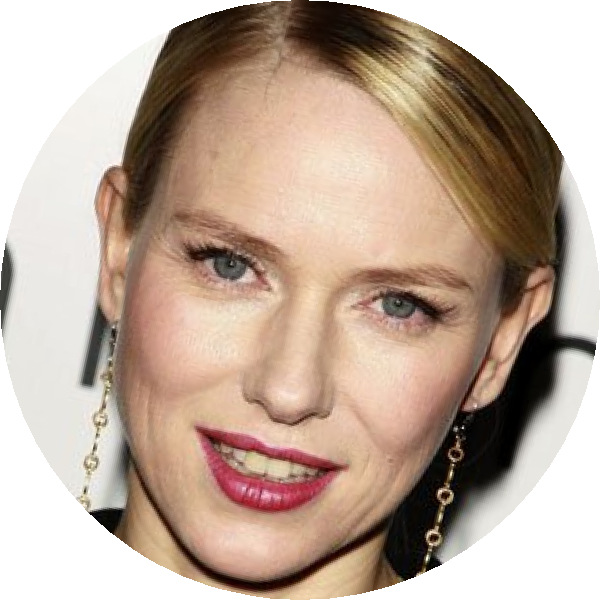The Mulholland Drive Masterpiece

Spoilers ahead! David Lynch is a master craftsman and this is his most accessible work, I think (at least of his work that I've seen). The story actually does make sense, even the nightmare behind the diner sequence (contact me, I'll explain :) - there are clues as to the true nature of the story everywhere in this opus). And over and above making sense, the story is a masterpiece! It's a deep-dive into a shattered mind. O, and Naomi Watts is so utterly brilliant in it, I have no words. The fact that she didn't get an Oscar is an absolute travesty. Thanks to Luca Maffei for this overview, which contains every spoiler in the book :: After surviving a terrible car accident along Mulholland Drive, a woman loses her memory completely. Frightened and traumatized, she takes refuge in a house belonging to an Hollywood actress where she meets a girl seeking her fortune, who tries to help her remember who she is. In the meantime, a well-known filmmaker is strong-armed by Mafia into casting their actress of choice in the leading role of his film, and a monstrous figure terrorises an unnamed man.
“Hey, pretty girl, time to wake up”
It’s pretty hard to believe David Lynch has claimed he doesn’t consider himself a cinephile after all, because each movie is so beautiful and chosen with great care it can only come from a brilliant mind, deeply loving and understanding Cinema at its best. Mulholland Drive is no exception: within a filmography in which it’s almost impossible to choose movies significantly better than others – except for the unfortunate Dune – the above-mentioned movie represents the pinnacle of Lynchian poetics. The point of no return, a limit beyond which the author’s aestethics can’t go any further. It’s no coincidence that the filmmaker’s following movies, Inland Empire and Twin Peaks: The Return, would be extensions of what we have already seen in this one and other Lynch’s movies. That doesn’t necessarily mean Mulholland Drive is the best of Lynch’s, nor that his following works fail to meet expectations: it simply means this movie marks a definitive point of arrival.
A fun fact about this movie is it has started as a resounding failure: ABC agreed to produce Lynch’s television pilot for a new TV series conceived during Twin Peaks at the end of the 90s – it was firstly conceived as a spin-off from this series, as found out later – hoping to recreate what is considered the American filmmaker’s highest-grossing film nowadays.
Things went wrong because the broadcaster was not satisfied with the footage and they decided to abandon the whole project. But thanks to the French film production StudioCanal, Lynch managed to take the unreleased pilot back and he decided to get some new material – about forty minutes of new scenes – reassembling everything, turning it into a film and subsequently releasing it in theaters in 2001. The most acclaimed movie of the last twenty years has started out as a rejected television project: funny, isn’t it?
BBC was wrong to consider Mulholland Drive the best film of the 21st Century: as revolutionary as linked to classical cinema and having its roots in that Old Hollywood Lynch mentions several times (probably feeling nostalgic about), it’s actually the last great masterpiece of the 20th Century.
As Shutter Island, Mulholland Drive is a film about dissociation, but in spite of Scorsese’s main interest into assembling a great human drama within his movies, Lynch prefers to be exclusively focused on the oneiric dimension. The Trauma, the Dream, and the dream as trauma. Mulholland Drive is the greatest study of a dream – and therefore of a trauma – ever seen in theatres, which takes place on three interlacing and overlapping levels – Reality, Dream and Subconscious. As usual, this happens without any explanation being given and leaving the viewer the task of putting things in a particular order (as occurred in Lost Highway). There is no mystery to be revealed nor thriller involved, there is no peculiar human tragedy. In order to love and understand the movie, one has to necessary go with the flow and enter the dream.
Diane Selwyn (Naomi Watts) is an aspiring Hollywood star who has never managed to break into acting and she has recently ended her relationship with Camilla Rhodes (Laura Harring), a well-established actress who gives her a hand to get minor roles in several movies. After being invited to a dinner party by Camilla and riding in a limousine on Mulholland Drive, her ride is interrupted: waiting for her along the road her ex-girlfriend surprisingly arrives to walk her up to a party at Adam Kesher’s house (Justin Theroux), director of their upcoming film. Diane’s deep shock after Camilla and Adam announce their engagement during the party forces her to hire a hitman to kill the woman has betrayed her. The killer shows her a blue key: when Diane sees it again, it will mean the job has been fulfilled. Although this is a turning point, it’s not placed at the beginning of the movie, but just before the end, so everything else happening in the first two hours of Mulholland Drive is nothing but Diane’s dream and her subconscious mind struggling to deal with her love affair and guilt over the decision to have Camilla killed.